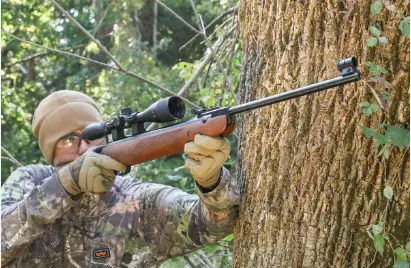⚠️ Airguns are not toys. Always follow safety regulations. Must be 18+ to purchase.
⚠️ Airguns are not toys. Always follow safety regulations. Must be 18+ to purchase.

Airgun hunting is growing in popularity, especially among those seeking a quieter, more precise hunting method. But with this rise in use comes a common question: Is airgun hunting ethical? While traditional firearms have long been accepted in the hunting world, airguns spark debate around power, effectiveness, and animal welfare.
In this blog, we’ll explore the ethical considerations behind airgun hunting, bust common myths, and provide practical insights for responsible hunters.
Ethical hunting is about respect, responsibility, and fair chase. It’s not just about taking game—it’s about how and why you do it.
At its core, ethical hunting includes:
Whether you’re using a rifle, bow, or airgun, these principles remain the same.
This is one of the biggest concerns when it comes to airgun hunting. The truth is: not all airguns are created equal.
For hunting to be ethical, the airgun must deliver enough energy (measured in foot-pounds or FPE) to ensure a quick, humane kill. Here’s a general guide:
If your airgun meets the power requirement and you place your shot correctly, it can be just as ethical as using a firearm.
Let’s clear up some common misunderstandings:
| Myth | Truth |
|---|---|
| Airguns aren’t lethal enough for hunting | High-powered airguns can humanely take down small to medium game |
| It’s unethical because animals may suffer | Unethical results come from poor shot placement—not the tool itself |
| Airguns are only toys or beginner weapons | Modern PCP airguns are advanced tools used by skilled hunters worldwide |
| All airguns are suitable for hunting | Only certain calibers and power levels are appropriate for ethical use |
Understanding the tool’s limitations is key. An ethical hunter knows their weapon and stays within its capabilities.
Even with the most powerful airgun, poor shot placement is unethical. Precision is everything. Ethical airgun hunters:
A quick, humane kill minimizes suffering and aligns with the core principles of ethical hunting.
Ethical hunting also means following the law. Every region has different rules about what game can be hunted with airguns and what calibers or power levels are allowed.
Key points for ethical compliance:
Conservation is also a moral pillar. Ethical hunters aim to preserve ecosystems, not harm them. Taking only what you need and avoiding over-hunting are essential practices.
When used properly, airguns offer several benefits that can actually enhance ethical hunting:
These factors often lead to better shot discipline and cleaner kills, reinforcing the argument that airgun hunting can be not only effective but also ethical.
True hunting ethics go beyond the trigger pull. An ethical airgun hunter:
Being ethical isn’t a rule—it’s a mindset. It’s about respecting the natural world and taking responsibility for every shot.
Airgun hunting isn’t inherently unethical—it all comes down to how you hunt, not just what you hunt with. With the right equipment, knowledge, and attitude, airgun hunters can be every bit as ethical as traditional firearm users.
Whether you’re pest controlling, hunting small game, or testing your skills with precision shooting—remember: every ethical choice begins before the shot is fired.
| Ethical Airgun Hunting | Unethical Airgun Hunting |
|---|---|
| Uses appropriate caliber and FPE | Uses underpowered airguns irresponsibly |
| Aims for vital zones | Takes random or risky shots |
| Follows local laws and seasons | Hunts illegally or out of season |
| Practices regularly | Shoots without proper preparation |
| Respects game and nature | Disregards animal welfare and impact |